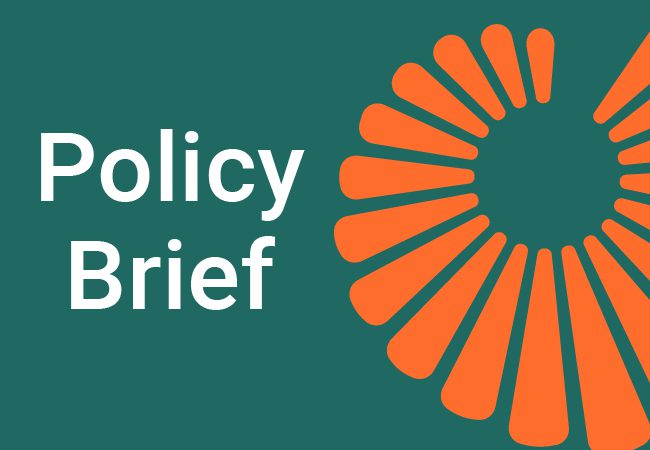Policy Brief: Falling Behind – Children’s Rights in Ireland

On Tuesday, May 16 2023, the Ombudsman for Children’s Office (OCO) released its annual report for 2022. The ‘Falling Behind – Children’s Rights in Ireland’ report revealed a total of 1,812 complaints made to the Ombudsman’s office last year and highlighted numerous areas of concern, with the mental health system, increased poverty, and barriers to education being of particular importance. In 83% of cases, it was a parent who made the complaint, 5% were made by professionals or organisations, 4% by other/unknown, 3% by an extended family member, 3% by an unrelated adult, and 2% of complaints were made by children themselves.
The report garnered wide-ranging national media coverage upon its release, and this was followed by comprehensive regional coverage the next week, in which local media highlighted the number of complaints made in their respective counties.
What is the Ombudsman for Children Office?
The Ombudsman for Children’s Office (OCO) is a human rights institution that promotes the rights and welfare of all children and young people under the age of 18 living in Ireland. The OCO is a free and independent service that investigates complaints about services provided to children by public organisations. The current Ombudsman for Children is Dr Niall Muldoon.
Key findings
The main takeaway from this report is that Ireland is beginning to fall behind on children’s rights. Areas of particular concern include the mental health system and the many barriers to education that children are facing. Furthermore, the standard of living coupled with increased poverty is negatively affecting children residing in the state.
The report states that the Child and Adolescent Mental Health Services (CAMHS) is “hugely dysfunctional and not fit for purpose.” While the cost-of-living crisis and the housing emergency mean that thousands of children are not getting the support and services they require. Some of those are not even having their basic needs met.
The majority of complaints (30%) were focused on education. Some of the most common issues were bullying, expulsion or suspension, special education resources and access to school transport.
Justice matters accounted for a quarter of all complaints (25%). The majority of these were about passports. Other areas included Direct Provision, emergency accommodation, safety fears, access to healthcare and education, and a disparity in treatment for those seeking asylum from different parts of the world.
Health was next at 14%. Children waiting for health services was one of the main subjects of complaints received. Many others related to how hospitals manage complaints
13% of complaints were directed at Tusla, with a myriad of issues raised, including how Tusla communicates with service users and their families, and how it deals with complaints and support for families and foster carers.
11% of complaints were redirected or were not within the remit of the OCO.
Local Authorities accounted for 6% of complaints. These were mostly related to issues of homelessness and access to emergency accommodation, while 1% of complaints was related to Finance, including supports such as Disability Allowance.
Conclusion
The Children’s Ombudsman is unequivocal that Ireland is falling behind on children’s rights and states that we should “redouble our commitment to children and to create a society that sets the highest standard where all children have the opportunity to reach their potential.” To do this, the OCO recommends that the UN Convention on the Rights of the Child is incorporated into Irish laws and that there needs to be a “real commitment to tangible and concrete changes for children.”
Some examples include:
- finally integrating children’s rights into legislation
- committing to ending homelessness for children
- completely reforming the child and adolescent mental health services
- providing school places for all children
Finally, the State still does not know exactly what it spends on children, and the data needed to resource services is not being “adequately recorded.” The multitude of agencies and departments that work directly with children are not working together as “efficiently or effectively as they could.”
Meanwhile, there are still some groups of children who are disproportionately affected, including those in care, in the justice system, with disabilities, in poverty, LGBTQ+ children, homeless children, Traveller and Roma children and those seeking refuge in Ireland.
In August 2022, the Department of Children, Equality, Disability, Integration and Youth (DCEDIY) published the blueprint for a new national policy framework for children and young people, in which many of the OCO’s proposals and priorities were reflected. The OCO also expects that the new framework will explicitly reflect the conclusions of the UN Committee regarding Ireland in February of this year. Specifically, that the framework should include a “focus on mainstreaming children’s rights and a child rights-based approach to decision-making affecting children and on addressing inequality and discrimination”.
***
If you have any questions regarding this report, please contact our policy team.









